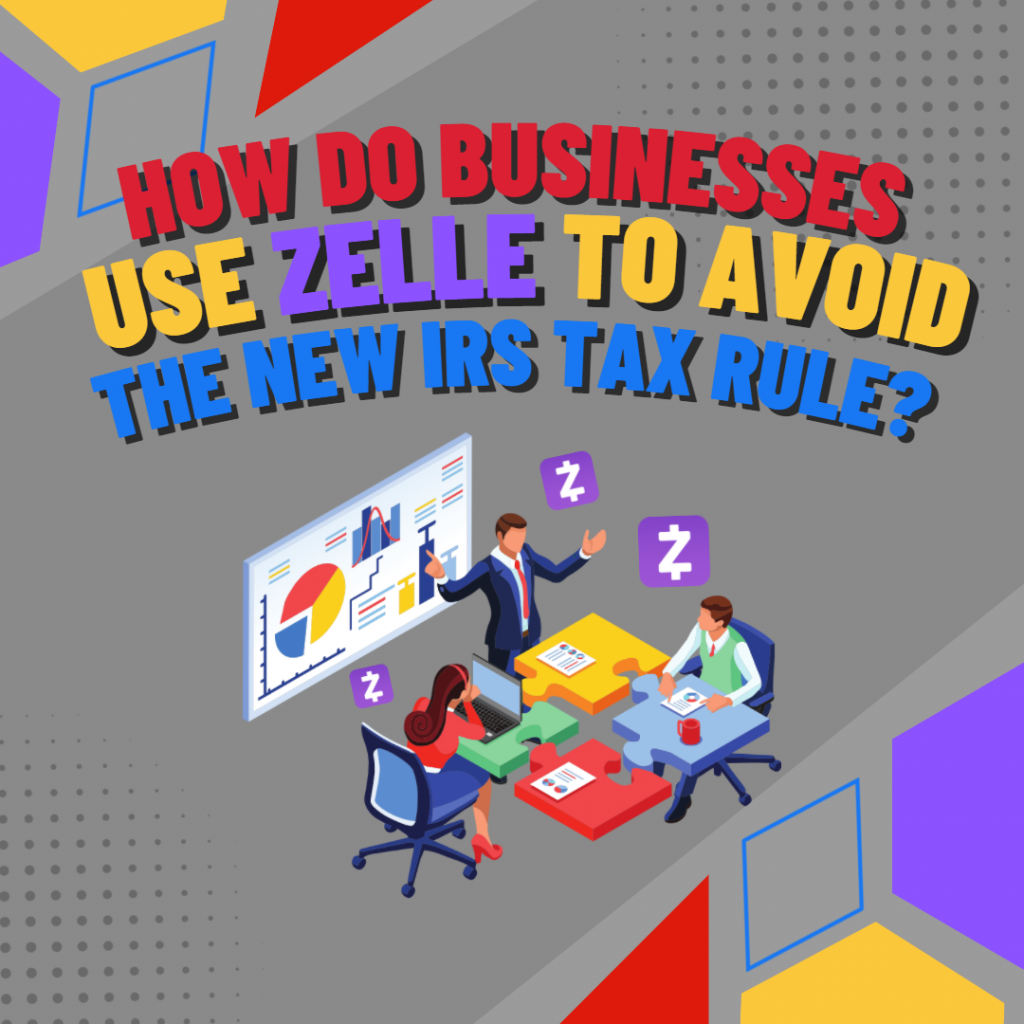Author: Britanny Holand
Despite the new IRS tax rule, some business owners couldn’t care more to follow it because Zelle allows them to avoid certain taxes on receiving payment.
Compared to other third-party payment options, Zelle has a tax loophole advantage.
While it is a useful solution to avoid paying some taxes, it is bad news for the government that could lead to the loss of tens of billions of dollars in tax revenue.
This is why using Zelle might sound like a way to violate the tax rule. Still, many small business owners take advantage of its service with the intention.
It is a dangerous game for businesses to purposely use Zelle to cheat on tax payments. There might be consequences, especially since the loophole can also mess with the government’s revenue on taxes. While this might get you curious, you must know it is not entirely Zelle’s fault that the new IRS Tax Rule doesn’t apply to its services.
How Zelle is used for tax evasion?
Technically speaking, Zelle is different because it is a private financial services company focused only on a bank-to-bank processing service.
What makes it unique from the other third-party payment options is that it doesn’t hold any funds. There goes its loophole advantage. Due to its setup, Zelle strongly claims that its services are not subject to the new IRS tax rule.
The rule requires third-party payment options to provide 1099-K forms to users who receive more than $600 in payments. Venmo and Paypal are subject to that.
Before the new IRS tax rule went into effect on January 1, 2022, other third-party payment options followed the old rule that required them to issue 1099-K forms only for users with gross payments exceeding $20,000 and made more than 200 in transactions.
Simply put, the IRS has drastically lowered the thresholds, subjecting more small business owners and gig workers to the new tax rule. Thus, they are also flocking to Zelle, knowing that it has a tax loophole.
With Zelle’s tax loophole, users can evade having to report the income they received on the app. That’s tempting because small business owners and gig workers don’t really earn that much to be motivated to pay taxes they can avoid. With that said, many believe that the noncompliance level from small businesses is staggering. Many think the IRS won’t experience difficulty unraveling tax cheaters because it is clear that it wants people to be responsible when it comes to reporting their income.
Final Thoughts
While things are fuzzier when it comes to Zelle’s setup and services, the popularity of its loophole offer can probably influence the IRS tax rule in the long run.
Soon, the IRS will start to bring more attention and focus on what’s happening regarding compliance with the tax rule.
Zelle has been aware of its edge over other third-party payment apps. It doesn’t matter if it has intentionally boasted its service as a way for customers to dodge certain taxes. As of now, the loophole seems to be working. Yet, it doesn’t mean that it won’t change in the near future.

